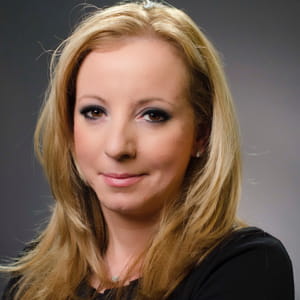Drexel to Establish Dornsife Center for Neighborhood Partnerships

- Drexel University's Recent Academic Activity: Sponsored Opportunities and New Partnerships From Fall 2025
- Faculty Highlights: Recent Awards and Grants from Fall 2025
- ADHD Symptoms Predict Distinct Creative Problem-Solving Styles and Superior Solving Ability
- Lin-Manuel Miranda’s Miranda Family Fund to Support the Public Launch of Drexel University Improvisational Theater-Based Program Helping Autistic Youth

“In the tradition of the cooperative extension programs that brought university education and services to rural areas, we’re thrilled that the Dornsife Center will allow Drexel to teach and partner with our neighbors right where they live,” said Fry. “I am incredibly grateful to Dana and David Dornsife for supporting Drexel’s vision for civic engagement, and believing in the vibrant and close-knit neighborhoods we serve.”
The Dornsife Center will serve as a resource for sharing expertise and knowledge with the members of the local community. Dedicated to education, problem solving, social entrepreneurship and innovation, it will offer a welcoming environment for local children and families, rich with technology, and fully accessible to senior citizens.
Philanthropists Dana and David Dornsife are well-known for helping to solve the biggest problems facing today’s world through their intelligence, talent, generosity and time. Their steadfast focus is on improving the quality of life for all people.
Dana Dornsife received her bachelor’s degree in business from Drexel. She is the founder of the Lazarex Cancer Foundation and serves as its president and CEO.
David Dornsife, a University of Southern California trustee and 1965 alumnus, is chairman of the Herrick Corp., the largest steel fabricator and contractor on the West Coast. Herrick’s projects include high rises, specialty projects, hospitals, airports and hotels.
“Drexel’s project inspired us because of its potential to serve as a model for urban outreach by universities nationwide,” said Dana Dornsife. “I’m proud of my alma mater, and I look forward to seeing Drexel’s impact on the Powelton Village and Mantua neighborhoods.”
“Drexel’s project inspired us because of its potential to serve as a model for urban outreach by universities nationwide,” said Dana Dornsife. “I’m proud of my alma mater, and I look forward to seeing Drexel’s impact on the Powelton Village and Mantua neighborhoods.”
“The Dornsife Center, and the generosity of Dana and David Dornsife, will help make Drexel’s commitment to neighborhood partnerships tangible,” said Drexel Vice Provost for University and Community Partnerships Dr. Lucy Kerman. “Rather than bringing our neighbors to campus, or bringing education and services to Powelton Village and Mantua as visitors, Drexel will stand alongside residents in an inspiring, inviting facility open to all.”
As the venue for Drexel's research, practice and scholarship, the Dornsife Center will offer space for activities developed and delivered by the University’s participating colleges and schools. Through offerings—such as a free law clinic, health and wellness programming, homework help, arts collaborations, architectural design-build studios and environmental engineering demonstrations—Drexel faculty, students and professional staff will provide service and instruction as they fulfill the requirements of their academic programs. Whether through courses, research projects, service and class assignments, or required co-ops, experiential projects and internships, the programs offered at the Dornsife Center will be self-sustaining.
The Dornsife Center will engage every college and school at Drexel, and programs in the University’s Student Life, Lindy Center for Civic Engagement and Drexel Libraries. The Dornsife Center will attract adults and senior citizens, children and neighborhood youth, and its programming and services will be expansive. The development of the programmatic initiatives will evolve over time, and the members of the community will be integral to the visioning and planning processes.
Plans include programs in the following areas:
Healthy living:
Recognizing that good health is fundamental to success in all aspects of one’s life, the Center will provide services and programs related to healthy living, such as screenings, fitness classes and counseling. A community kitchen will provide healthy meals and cooking demonstrations using produce grown in the Center’s gardens. The Dornsife Center will house Drexel’s free Law Clinic, offering critical legal assistance and support to local residents.
Architecture students will have a design-build studio to implement solutions to design problems brought by local churches and community centers. Residents will observe—and local youth will see first-hand—the options available to them through education.
Digital access:
Computers will be available at the Dornsife Center, providing digital access in a community where fewer than half of the residents have computers in their homes. Neighborhood youth will learn how to create mobile applications and websites, and adults will write resumes and research job opportunities. The Internet will be readily available for answering questions on everything from diabetes and cancer risks to how to enroll in basic benefits.
Science, Technology, Engineering and Mathematics (STEM) Education:
Drexel’s commitment to K-12 partnerships will be enhanced by professional development programming at the Dornsife Center, while summer STEM (science, technology, engineering and mathematics) courses for school children will be available in the Dornsife Center’s classrooms and outdoor gardens.
The Dornsife Center may also house exhibits from the Academy of Natural Sciences of Drexel University introducing neighborhood residents to the Academy. There will also be counseling and workshops for entrepreneurs and small business owners and job training programs for residents.
Drexel’s commitment to helping the underserved can be traced to its founding in 1891, when Anthony J. Drexel created the Drexel Institute to provide working-class men and women with access to an education that would improve their lives and economic prospects in the Industrial Age. Last year at Drexel University more than 10,500 students, as well as numerous faculty and professional staff, participated in a wide variety of community service activities.
In This Article
Contact
Drexel News is produced by
University Marketing and Communications.
